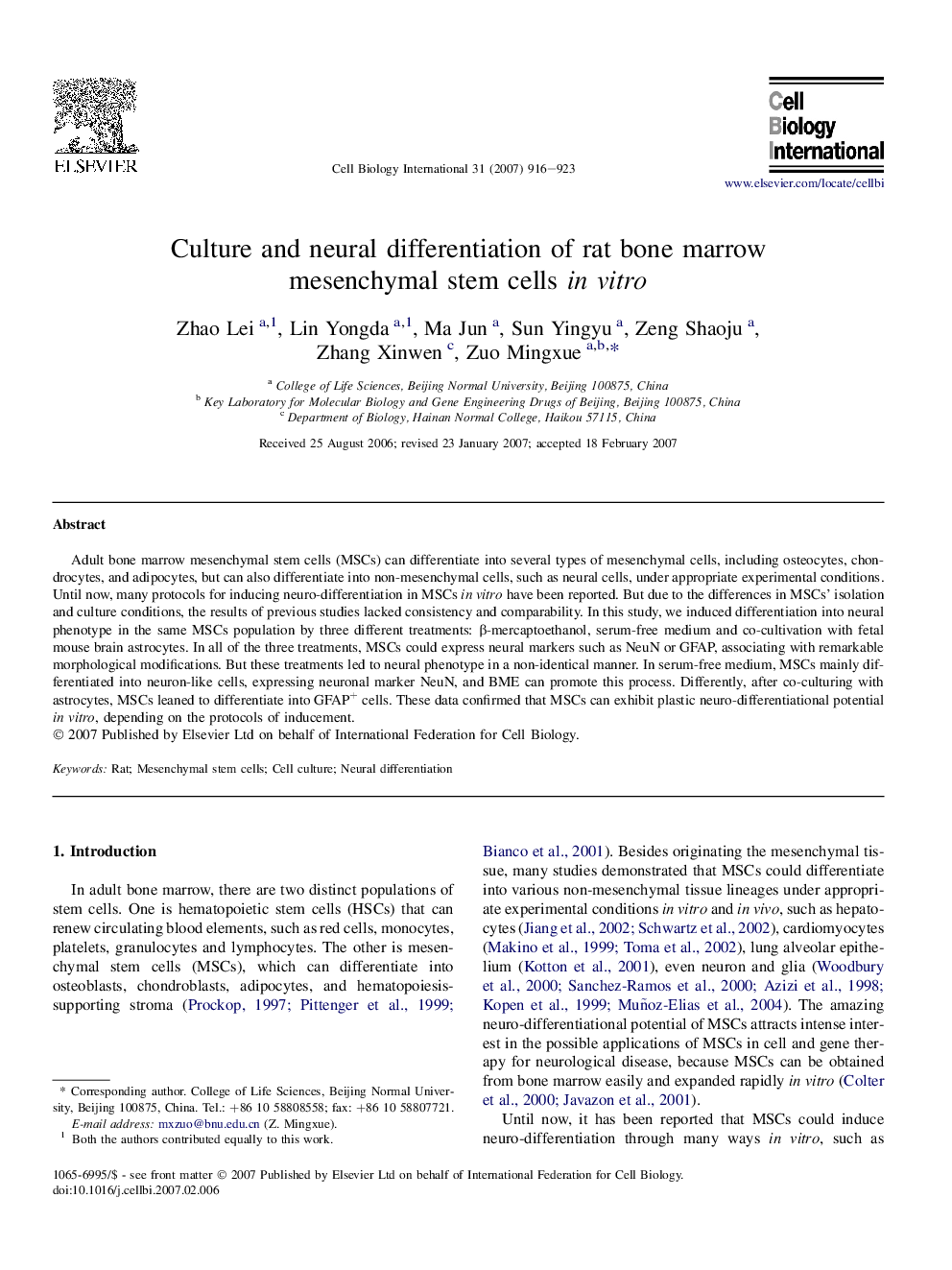| Article ID | Journal | Published Year | Pages | File Type |
|---|---|---|---|---|
| 2067689 | Cell Biology International | 2007 | 8 Pages |
Abstract
Adult bone marrow mesenchymal stem cells (MSCs) can differentiate into several types of mesenchymal cells, including osteocytes, chondrocytes, and adipocytes, but can also differentiate into non-mesenchymal cells, such as neural cells, under appropriate experimental conditions. Until now, many protocols for inducing neuro-differentiation in MSCs in vitro have been reported. But due to the differences in MSCs' isolation and culture conditions, the results of previous studies lacked consistency and comparability. In this study, we induced differentiation into neural phenotype in the same MSCs population by three different treatments: β-mercaptoethanol, serum-free medium and co-cultivation with fetal mouse brain astrocytes. In all of the three treatments, MSCs could express neural markers such as NeuN or GFAP, associating with remarkable morphological modifications. But these treatments led to neural phenotype in a non-identical manner. In serum-free medium, MSCs mainly differentiated into neuron-like cells, expressing neuronal marker NeuN, and BME can promote this process. Differently, after co-culturing with astrocytes, MSCs leaned to differentiate into GFAP+ cells. These data confirmed that MSCs can exhibit plastic neuro-differentiational potential in vitro, depending on the protocols of inducement.
Related Topics
Life Sciences
Biochemistry, Genetics and Molecular Biology
Biophysics
Authors
Zhao Lei, Lin Yongda, Ma Jun, Sun Yingyu, Zeng Shaoju, Zhang Xinwen, Zuo Mingxue,
